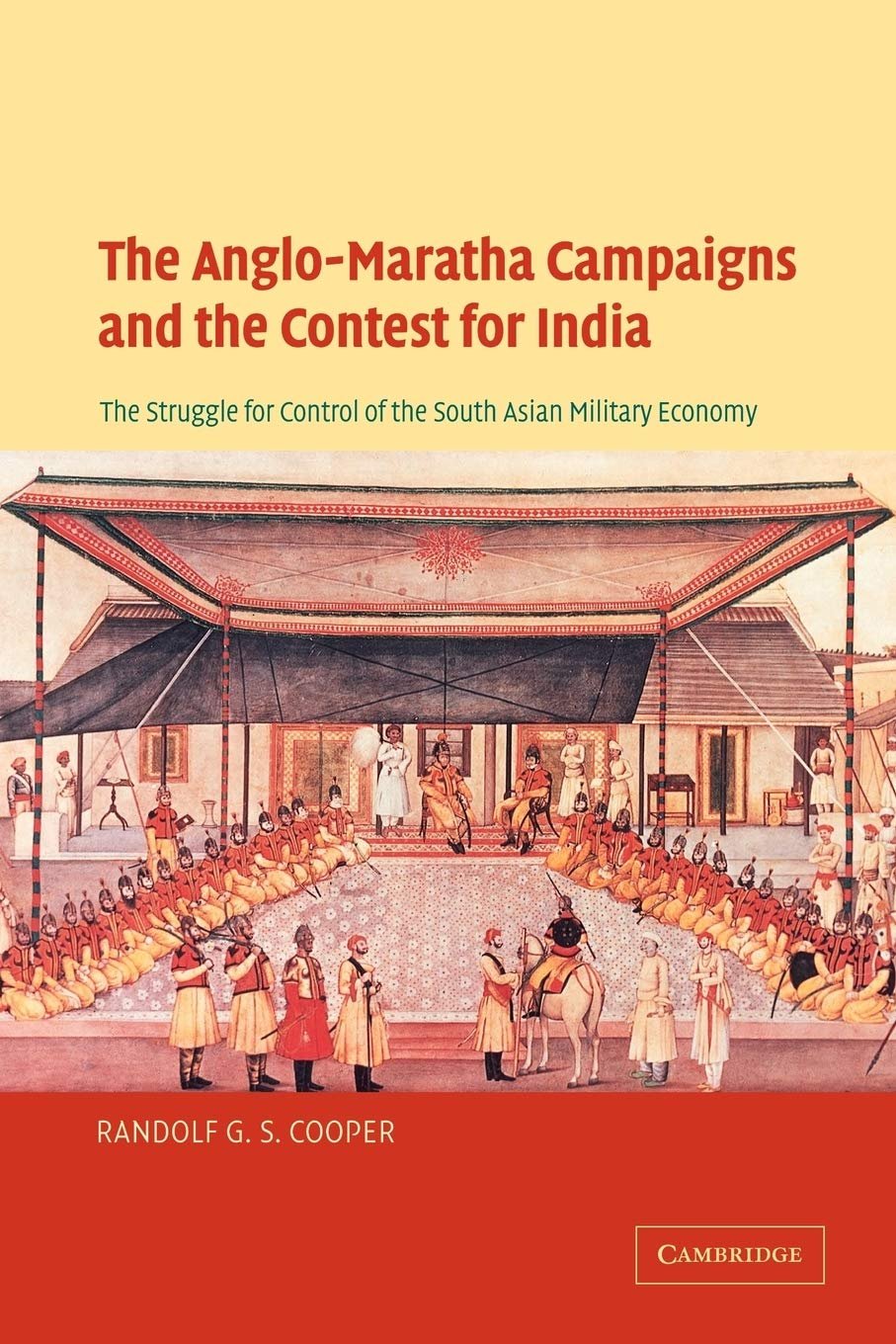British took power from Mughals or marathas?


We often hear how British defeated Indians in 1857 and power got transferred from last Mughal emperor to English Crown. This view is greatly supported by Leftist/Islamic intellectuals and obfuscates the history of wars that British had to wage and win against native powers. Among the native powers (Maratha, Sikh, Gurkha, Mysore), only Marathas were a true pan-Indian challenge.
This is what Randolf G. S. Cooper have to say in The Anglo-Maratha Campaigns and the Contest for India: “…I quickly denounced this pretentious tome as too elementary in its abbreviated coverage of the subcontinent. The offending volume skipped easily from the Mughal Empire to the British Raj with heavily illustrated pages that showed greater concern for continuity than content. The text contained brief summaries of political events implying that the Mughals controlled India from 1526 until 1857 and then the British apparently stepped in as imperial rulers from 1858 to 1947. Leaving aside the long history of the East India Company (EIC) prior to 1858, there were still fundamental problems with this story. If modern South Asia had grown out of a seam-less transition of imperial power, why had the British fought such a long series of wars there? There were three Anglo-Bengal Wars, four Anglo-Mysore Wars, at least three Anglo-Maratha Wars, as well as Anglo-Sikh and Anglo-Afghan Wars, which suggested the transference of power in South Asia was not analogous to passing the baton of governance in a relay race……… The Marathas were the last indigenous South Asian power that was militarily capable of not only halting but also rolling back the consolidation process that ultimately produced the British Raj. The Anglo-Sikh Wars (1845-6, 1848-9) and the Anglo-Afghan Wars (1839-42, 1878-80, 1919) occurred after the British had achieved a military perimeter around the majority of Hindus in India. In subcontinental terms, these later wars were comparatively localized conflicts which would have had limited in-terethnic political appeal for Hindus beyond the regional strongholds of the Sikhs and Afghans.”
Same view espoused by Dennis Kincaid: “Most English people have hear of Mughals as almost the traditional pre-British rulers of India. They then find it puzzling that the earlier heroes of Anglo-Indian biography apparently never oppose any Mughals but are constantly in difficulties with the Marathas. It behoves us also to study the legacy of Marathas, that we might profit by the inspirations of their achievements and be warned by their failure.”
It was the Battle of Delhi, fought on September 11, 1803 between British troops under General Lake, and Marathas of Daulat Rao Scindia’s Army that made British the custodian of the Mughal Empire.
It is high time this view is strongly countered as all information are easily available now at our disposal.
DISCLAIMER: The author is solely responsible for the views expressed in this article. The author carries the responsibility for citing and/or licensing of images utilized within the text.
